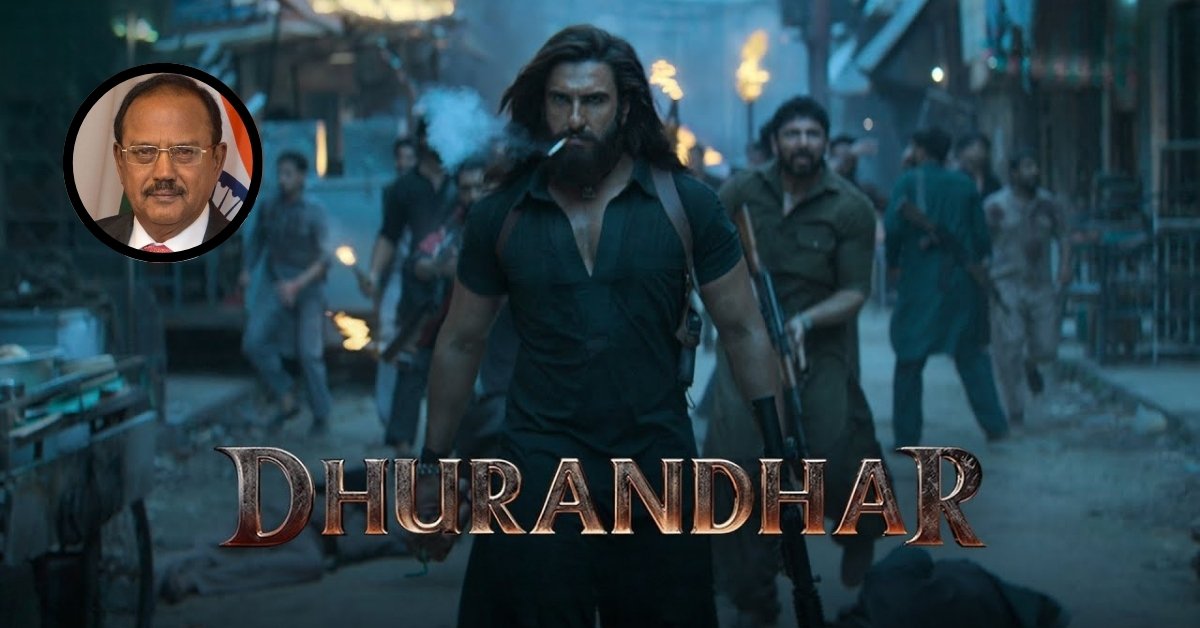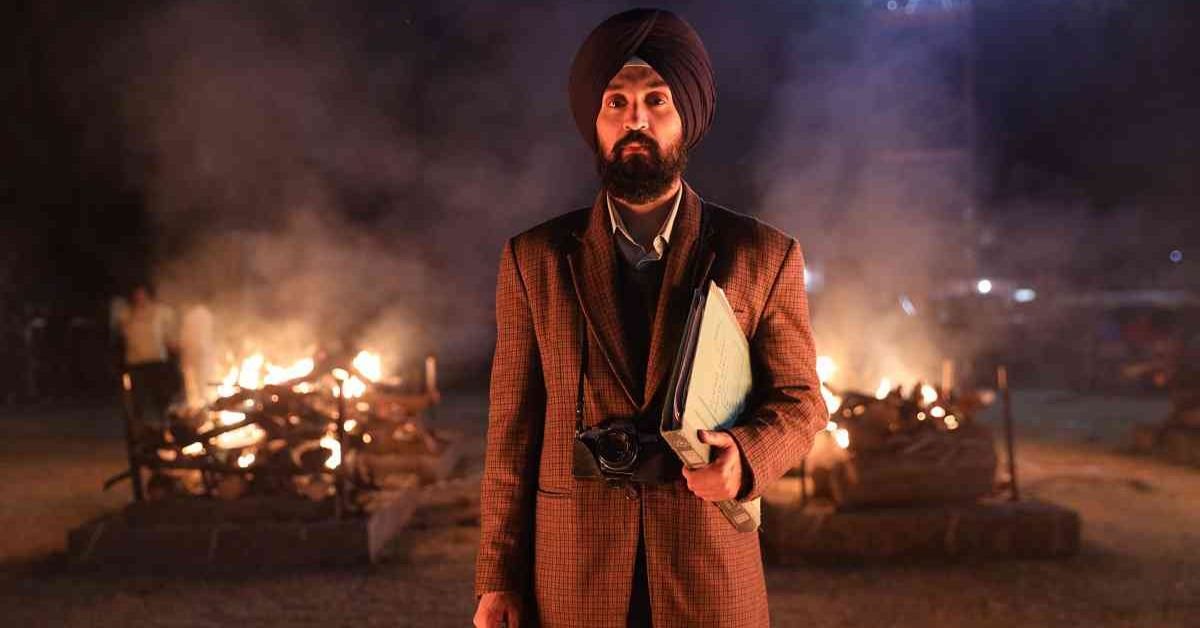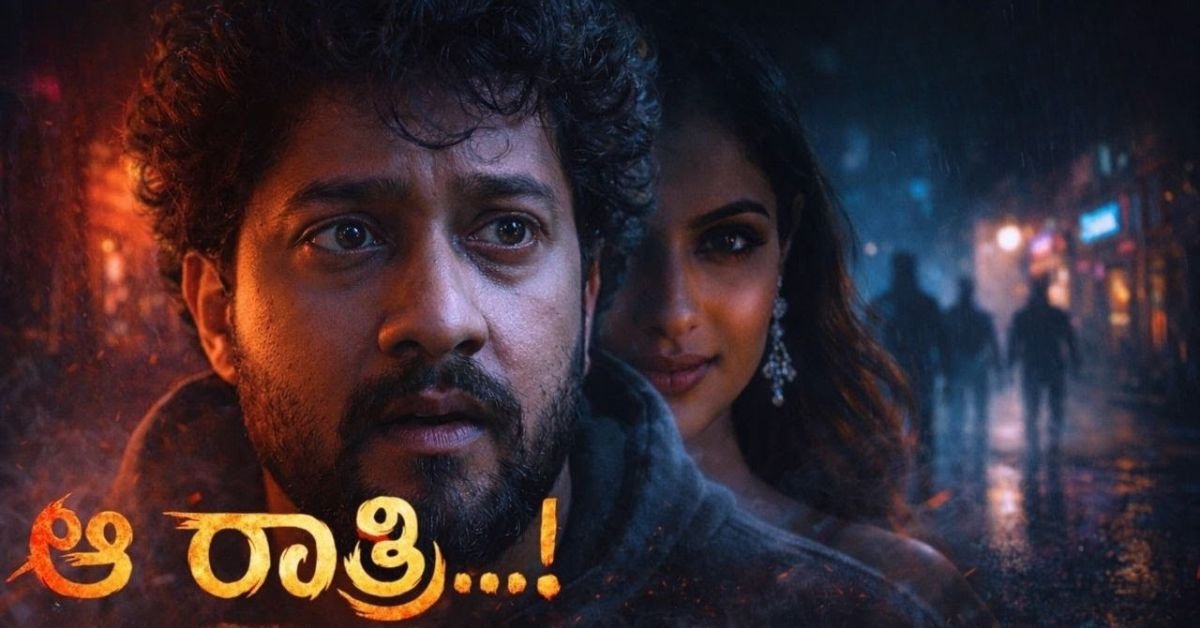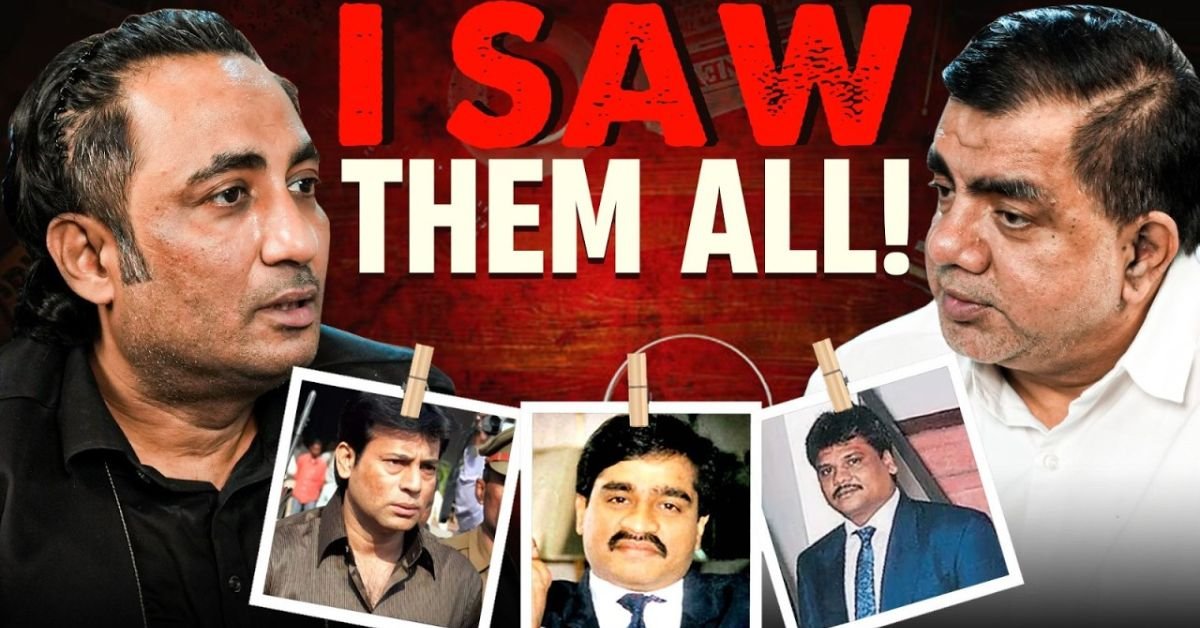Table Of Contents
Introduction
The world of espionage is shrouded in secrecy, but every so often, a story emerges that captures the imagination of the masses.
Dhurandhar, an upcoming Bollywood thriller set to release on December 5, 2025, is one such story.
Directed by Aditya Dhar, the mastermind behind Uri: The Surgical Strike, this film promises to deliver a high-octane narrative inspired by the life and career of Ajit Doval, India’s National Security Advisor (NSA) and a legendary spymaster.
Known as the “James Bond of India,” Doval’s daring operations have shaped India’s security landscape, and Dhurandhar aims to bring these exploits to the big screen.
However, what true events inspired this cinematic venture?
This comprehensive report delves into Ajit Doval’s real-life operations and strategic brilliance, exploring how his career informs the narrative of Dhurandhar.
From undercover missions in enemy territory to orchestrating surgical strikes, we uncover the facts, the fiction, and the significance of this film in celebrating India’s intelligence heroes.
Join us as we navigate the thrilling world of espionage and the man who has become synonymous with it.
Who Is Ajit Doval?
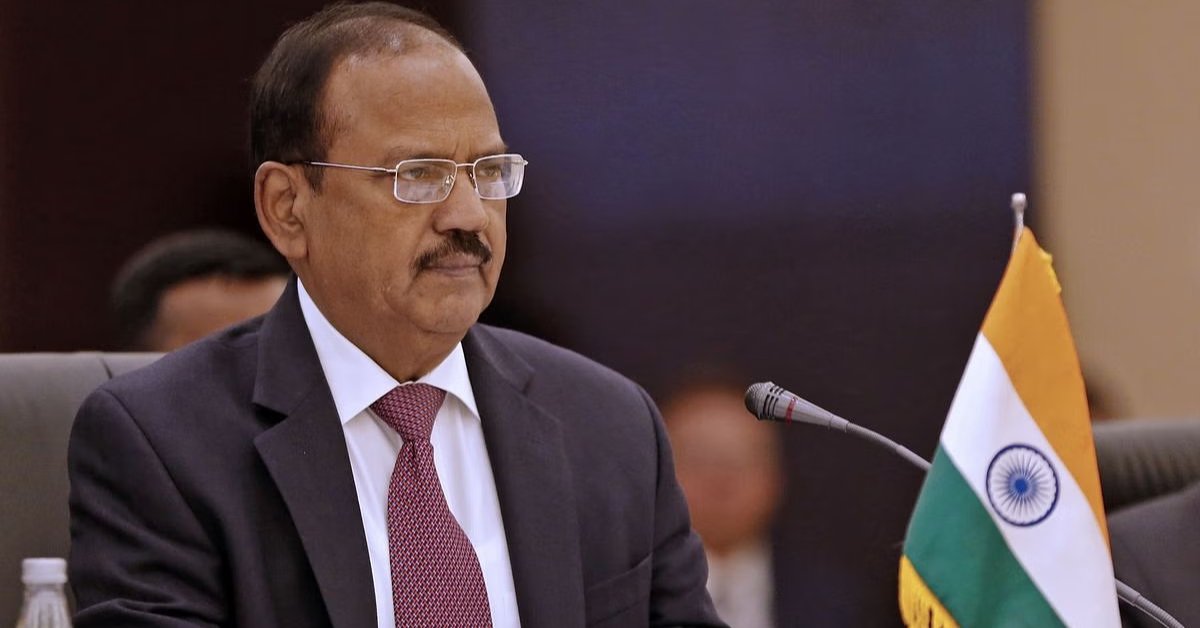
Early Life And Education
Ajit Kumar Doval was born on January 20, 1945, in Ghiri Banelsyun, a serene village in Pauri Garhwal, Uttarakhand.
Coming from a family with a military background, his father, Major G.N. Doval, served in the Indian Army.
Doval was instilled with a sense of duty from a young age.
He received his early education at Ajmer Military School in Rajasthan, a prestigious institution known for nurturing disciplined and determined individuals.
Later, in 1967, he pursued a Master’s degree in Economics from Agra University, followed by an M.Phil. from the National Defence College, showcasing his academic prowess alongside his operational skills.
Rise In The Intelligence Community
Doval joined the Indian Police Service (IPS) in 1968, assigned to the Kerala cadre.
His early career was marked by his work in anti-insurgency operations, first in Kerala and later in Mizoram and Punjab.
His exceptional strategic acumen and courage led to his recruitment into the Intelligence Bureau (IB), where he spent over a decade heading its operations wing.
Doval’s ability to navigate complex and dangerous situations earned him the nickname “James Bond of India,” which reflects his reputation as a master spy.
In 2004, Doval was appointed Director of the Intelligence Bureau, a role he held until his retirement in 2005.
Post-retirement, he founded the Vivekananda International Foundation, a think tank focused on national security and foreign policy.
Since 2014, he has served as India’s NSA, becoming the longest-serving in this role, with extensions in 2019 and 2024.
His tenure has been marked by a proactive approach to national security, earning him both praise and scrutiny.
Awards And Recognition
Doval’s contributions have been recognized with several prestigious awards, including the Kirti Chakra, India’s second-highest peacetime gallantry award, for his role in Operation Black Thunder in 1988.
He also received the Police Medal and the President’s Police Medal, underscoring his distinguished service.
His nickname, “James Bond of India,” is not just a catchy phrase but a testament to his daring and strategic brilliance.
Notable Operations And Events
Ajit Doval’s career is a tapestry of high-stakes operations that have significantly impacted India’s national security.
Below, we explore the key missions that likely inspired Dhurandhar, providing context, Doval’s role, and their outcomes.
Operation Black Thunder (1988): Infiltrating The Golden Temple
In the late 1980s, Punjab was gripped by the Khalistani insurgency, with militants occupying the Golden Temple in Amritsar.
Following the controversial Operation Blue Star in 1984, which resulted in significant loss of life and damage to the temple, the Indian government sought a more strategic approach.
Operation Black Thunder II, conducted in May 1988, aimed to flush out the militants with minimal collateral damage.
Doval, then an IB officer, played a pivotal role by infiltrating the Golden Temple disguised as a rickshaw puller and posing as an ISI agent.
He gained the trust of the Khalistani separatists, gathering critical intelligence on their positions, weaponry, and plans.
According to reports, Doval even provided misleading advice to the militants, sabotaging their efforts.
His intelligence was instrumental in the operation’s success, leading to the militants’ surrender without the widespread destruction seen in earlier operations.
This daring mission earned Doval the Kirti Chakra, making him the first police officer to receive this military honor.
IC-814 Hijack Negotiations (1999): Navigating A Crisis
In December 1999, Indian Airlines flight IC-814 was hijacked by terrorists linked to Harkat-ul-Mujahideen and taken to Kandahar, Afghanistan.
The seven-day crisis put immense pressure on the Indian government to secure the release of 176 passengers and crew.
Doval was part of the negotiation team sent to Kandahar, leveraging his experience in crisis management and counter-terrorism.
The negotiations were complex, involving the Taliban, who controlled Kandahar at the time and resulted in the controversial release of three terrorists, including Masood Azhar, in exchange for the hostages.
While the outcome was debated, Doval’s role highlighted his ability to operate under extreme pressure, a trait likely to be depicted in Dhurandhar’s portrayal of high-stakes espionage.
2016 Surgical Strikes: A Bold Response To Terrorism
On September 18, 2016, a terrorist attack on an Indian Army base in Uri, Jammu and Kashmir, killed 19 soldiers.
The attack, attributed to Pakistan-based militants, prompted a swift and unprecedented response.
On September 29, the Indian Army Parachute (Special Forces) conducted surgical strikes across the Line of Control (LoC) in Pakistani-administered Kashmir, targeting terrorist launch pads.
As NSA, Doval was a key architect of the operation, coordinating with military and intelligence agencies to ensure precision and effectiveness.
The strikes reportedly killed 35–40 militants and their supporters, with Pakistan acknowledging the deaths of two soldiers.
This operation marked a shift in India’s approach to cross-border terrorism, emphasizing proactive measures over restraint.
Given Aditya Dhar’s previous success with Uri: The Surgical Strike, it is highly likely that Dhurandhar draws inspiration from this event, showcasing the strategic planning and execution involved.
2019 Balakot Airstrike: Striking Deep Into Enemy Territory
Following a suicide bombing in Pulwama on February 14, 2019, which killed 40 Indian paramilitary personnel, India retaliated with airstrikes on a Jaish-e-Mohammed training camp in Balakot, Pakistan, on February 26.
Doval was one of only seven individuals, including Prime Minister Narendra Modi and the military chiefs, privy to the classified operation.
The airstrikes, the first of their kind inside Pakistan since 1971, targeted terrorist infrastructure and marked a significant escalation in India’s counter-terrorism strategy.
Doval’s role in planning and executing the operation, as well as his subsequent diplomatic efforts to secure the release of captured Indian pilot Abhinandan Varthaman, underscored his influence.
Dhurandhar may incorporate elements of this operation, emphasizing the high-stakes nature of such missions.
Operation Sindoor (2025): A Recent Chapter
In early 2025, India conducted Operation Sindoor, involving precision airstrikes on terror camps during a period of heightened India-Pakistan tensions, likely in response to the Pahalgam terror attack.
Doval, as NSA, led the intelligence-gathering efforts and coordinated the military response.
While details remain limited due to the operation’s recent nature, it aligns with Doval’s doctrine of proactive counter-terrorism, making it a potential influence for Dhurandhar’s narrative of modern espionage.
Other Notable Contributions
Doval’s career extends beyond these high-profile operations.
He was involved in resolving all 15 hijackings of Indian Airlines aircraft between 1971 and 1999, showcasing his crisis management skills.
His seven-year stint as an undercover agent in Pakistan, where he lived as a Muslim in Lahore, is particularly noteworthy.
During this period, he gathered intelligence on terrorist activities and even spied on Pakistan’s ISI, demonstrating unparalleled bravery.
Doval also participated in the Mizo Accord of 1986, which ended a 20-year insurgency in Mizoram and contributed to intelligence efforts during Sikkim’s merger with India in 1975.
However, his exact role in the latter is debated due to his junior position at the time.
Additionally, he facilitated the safe return of 46 Indian nurses trapped in Tikrit, Iraq, in 2014 and negotiated the handover of 22 militant leaders from Myanmar in 2020.
| Operation | Year | Role | Outcome |
|---|---|---|---|
| Operation Black Thunder | 1988 | Infiltrated the Golden Temple as an ISI agent, gathered intelligence | Militants surrendered, with minimal damage to the temple |
| IC-814 Hijack | 1999 | Part of the negotiation team in Kandahar | Hostages released, three terrorists freed |
| 2016 Surgical Strikes | 2016 | Planned and coordinated strikes as NSA | Targeted terrorist launch pads, significant casualties |
| 2019 Balakot Airstrike | 2019 | Key planner, diplomatic negotiations | Destroyed terrorist camp, pilot released |
| Operation Sindoor | 2025 | Led intelligence and coordination | Precision strikes on terror camps |
The Doval Doctrine: Shaping India’s Security Strategy
Ajit Doval’s strategic philosophy, often referred to as the “Doval Doctrine,” has had a significant influence on India’s national security policies.
In a 2014 lecture at Sastra University, Doval outlined three strategic modes: defensive, defensive offense, and offense.
He advocated for “defensive offense,” which involves proactively neutralizing threats through intelligence, diplomacy, and military action while remaining mindful of nuclear thresholds.
This doctrine is evident in operations like the 2016 surgical strikes and the 2019 Balakot airstrike, which reflect a shift from India’s earlier policy of strategic restraint to a more assertive stance.
The Doval Doctrine emphasizes exploiting adversaries’ internal contradictions and isolating them internationally, a strategy that has shaped India’s response to cross-border terrorism.
However, the doctrine has faced criticism for its perceived reliance on military might and lack of emphasis on diplomacy.
Some argue that it risks escalating tensions with neighbors like Pakistan and China, while others praise its effectiveness in deterring threats.
Dhurandhar is likely to reflect this doctrine, portraying its protagonist as a strategic mastermind who takes the fight to the enemy, mirroring Doval’s real-life approach.
The Movie Dhurandhar: A Cinematic Tribute
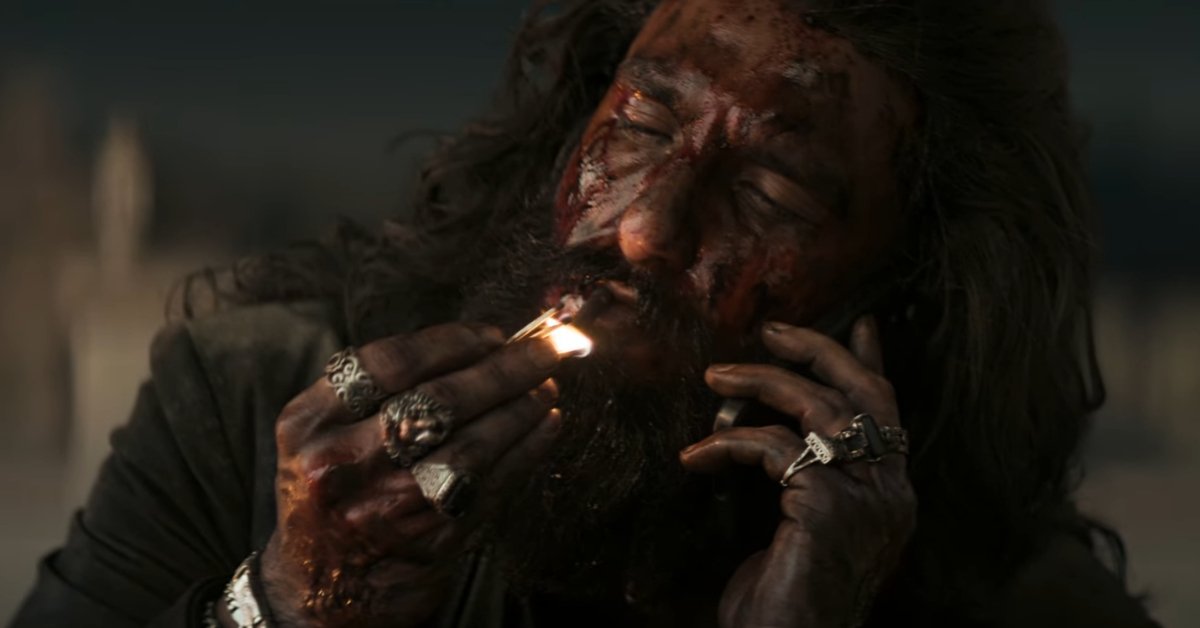
Director And Vision
Directed by Aditya Dhar, Dhurandhar builds on the success of Uri: The Surgical Strike, which brought the 2016 surgical strikes to life with authenticity and cinematic flair.
Dhar’s ability to blend real-life events with gripping storytelling makes him the perfect choice to helm this project.
In a recent interview, Dhar praised lead actor Ranveer Singh, stating, “Ranveer has outdone himself in the film. Watch out.”
This suggests a powerful performance that will anchor the film’s intense narrative.
Cast And Characters
The film boasts a stellar ensemble cast, including Ranveer Singh, Sanjay Dutt, R. Madhavan, Akshaye Khanna, Arjun Rampal, and Sara Arjun.
The first look, released on July 6, 2025, showcases Ranveer Singh in a rugged, intense avatar with long hair and a cigarette, engaging in violent action sequences.
The teaser, accompanied by a pulsating Punjabi track, hints at a narrative packed with bloodshed, action, and high-voltage drama.
There is some ambiguity regarding who plays Ajit Doval.
Some sources suggest that R. Madhavan portrays Doval, while others indicate that Ranveer Singh is in the lead role, possibly as a younger version of Doval or a character inspired by him.
Sanjay Dutt is rumored to play the antagonist, with Akshaye Khanna and Arjun Rampal representing other facets of the Indian intelligence apparatus.
This ensemble promises a complex narrative with multiple perspectives on espionage.
| Actor | Rumored | Description |
|---|---|---|
| Ranveer Singh | Secret Agent (possibly Doval) | Intense, rugged warrior in action sequences |
| Sanjay Dutt | Antagonist | A grey character with a menacing presence |
| R. Madhavan | Ajit Doval (speculated) | Portrays a seasoned intelligence officer |
| Akshaye Khanna | Intelligence Officer | Represents India’s security apparatus |
| Arjun Rampal | Intelligence Officer | Adds depth to the ensemble |
Plot And Inspirations
Dhurandhar’s plot centers on a top spy, likely inspired by Doval, who goes undercover in enemy territory to prevent a major crisis.
The teaser emphasizes “The Unknown Men,” a nod to the unsung heroes of India’s intelligence community.
While not based on a single event, the film draws from Doval’s operations, including his undercover missions in Pakistan, where he lived as a Muslim for seven years, and high-profile strikes like those in 2016 and 2019.
Reports suggest the narrative may also be inspired by classified intelligence operations, with comparisons to the assassination of a figure like Abu Qatal, a fictional or misnamed aide of Hafiz Saeed.
While not directly based on this event, the film’s storyline reflects the covert nature of such missions, blending real-life inspirations with dramatic flair.
Production Details
Backed by Jio Studios and B62 Studios, Dhurandhar is being shot on a massive scale.
The movie “Dhurandhar,” directed by Aditya Dhar and set for release on December 5, 2025, is an espionage thriller starring Ranveer Singh, Sanjay Dutt, R. Madhavan, Akshaye Khanna, and Arjun Rampal.
Given its plot description and news reports, it appears to be rooted in real-world intelligence operations, particularly those involving Ajit Doval.
Dhurandhar First Look
Real vs. Reel: Fact And Fiction
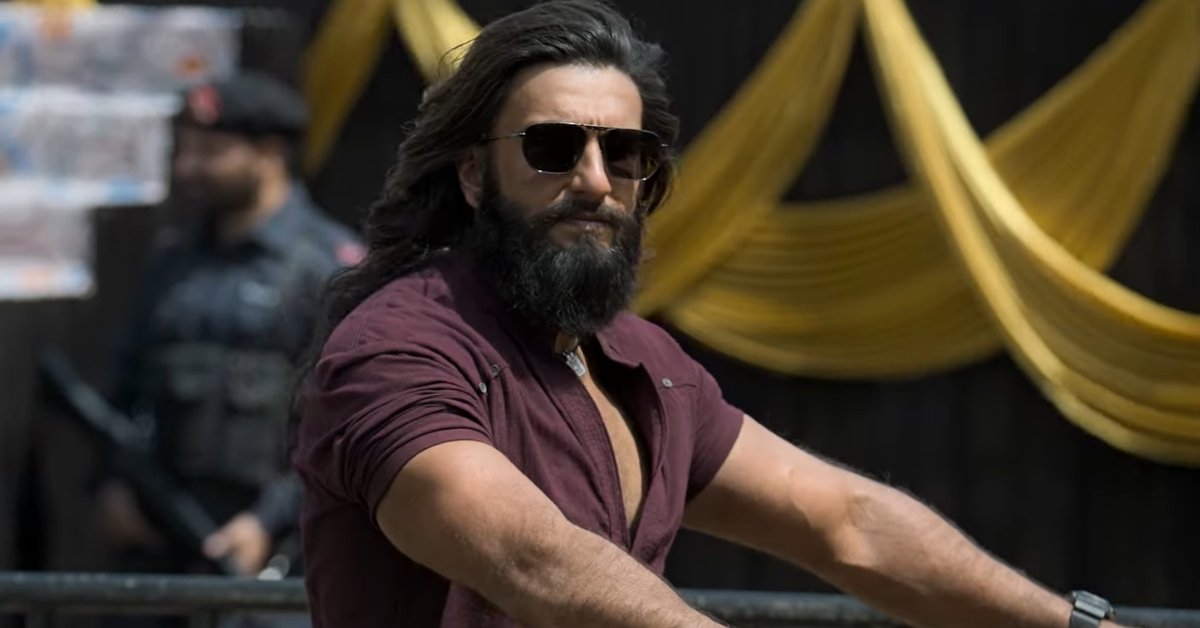
While actual events inspire Dhurandhar, it is a work of fiction that blends fact with cinematic embellishment.
Movies like this often amplify drama to captivate audiences, so viewers should expect a dramatized version of Doval’s life rather than a documentary.
For instance, the film may exaggerate the scale of operations or create composite characters to streamline the narrative.
However, this approach serves a purpose: to honor the sacrifices of intelligence officers while making their stories accessible to a broad audience.
By focusing on Doval’s legacy, Dhurandhar aims to illuminate the challenges and triumphs of India’s security apparatus and foster appreciation for its work.
Casting Controversy
The casting of Ajit Doval in the role has sparked debate among fans and critics.
Some sources claim that R. Madhavan plays Doval, citing his suitability for portraying a seasoned spymaster, while others believe Ranveer Singh, known for his versatility, will take on the role.
This ambiguity may be intentional, adding to the film’s mystique, or it could reflect multiple characters inspired by Doval’s career.
Regardless, the ensemble cast is expected to deliver performances that capture the intensity and complexity of espionage.
Why Dhurandhar Matters
In an era of heightened global tensions, Dhurandhar presents a timely examination of national security and the role of intelligence in protecting a nation.
By bringing Ajit Doval’s story to the forefront, the film humanizes the unsung heroes who operate in the shadows, highlighting their courage and strategic brilliance.
Moreover, Dhurandhar has the potential to inspire a new generation to engage with issues of national security, encouraging discussions about the balance between aggression and diplomacy.
It also highlights the significance of storytelling in cinema, bridging the gap between historical events and public understanding.
The Legacy Of Ajit Doval
Doval’s influence extends beyond his operational achievements.
As an NSA, he has shaped India’s security policies, advocating for a proactive stance that has redefined the country’s approach to terrorism.
His lectures at institutions such as the National Defence College and international think tanks reveal a profound understanding of strategic issues, making him a respected figure globally.
However, his tenure has not been without controversy.
Critics argue that his aggressive policies risk escalating regional tensions, while supporters credit him with strengthening India’s defenses.
Dhurandhar may explore these nuances, presenting a balanced portrayal of a complex figure.
Conclusion
As Dhurandhar prepares to hit theaters on December 5, 2025, it promises to be more than just a thrilling espionage drama.
It is a tribute to Ajit Doval and the countless intelligence officers who risk their lives for India’s safety.
From Operation Black Thunder to the surgical strikes, Doval’s career provides a rich source of inspiration, blending bravery, strategy, and sacrifice.
We invite you to watch Dhurandhar and immerse yourself in the world of espionage, where every decision can alter the course of history.
For more insights into national security and the stories behind the headlines, explore our blog at THOUSIF Inc. – INDIA, where we uncover the fascinating tales that shape our world.
Trivia
Did you know that Ajit Doval spent seven years undercover in Pakistan, living as a Muslim in Lahore? During this time, he narrowly escaped exposure when a Maulana suspected he was a Hindu, only to convince him otherwise with his quick thinking and composure.



